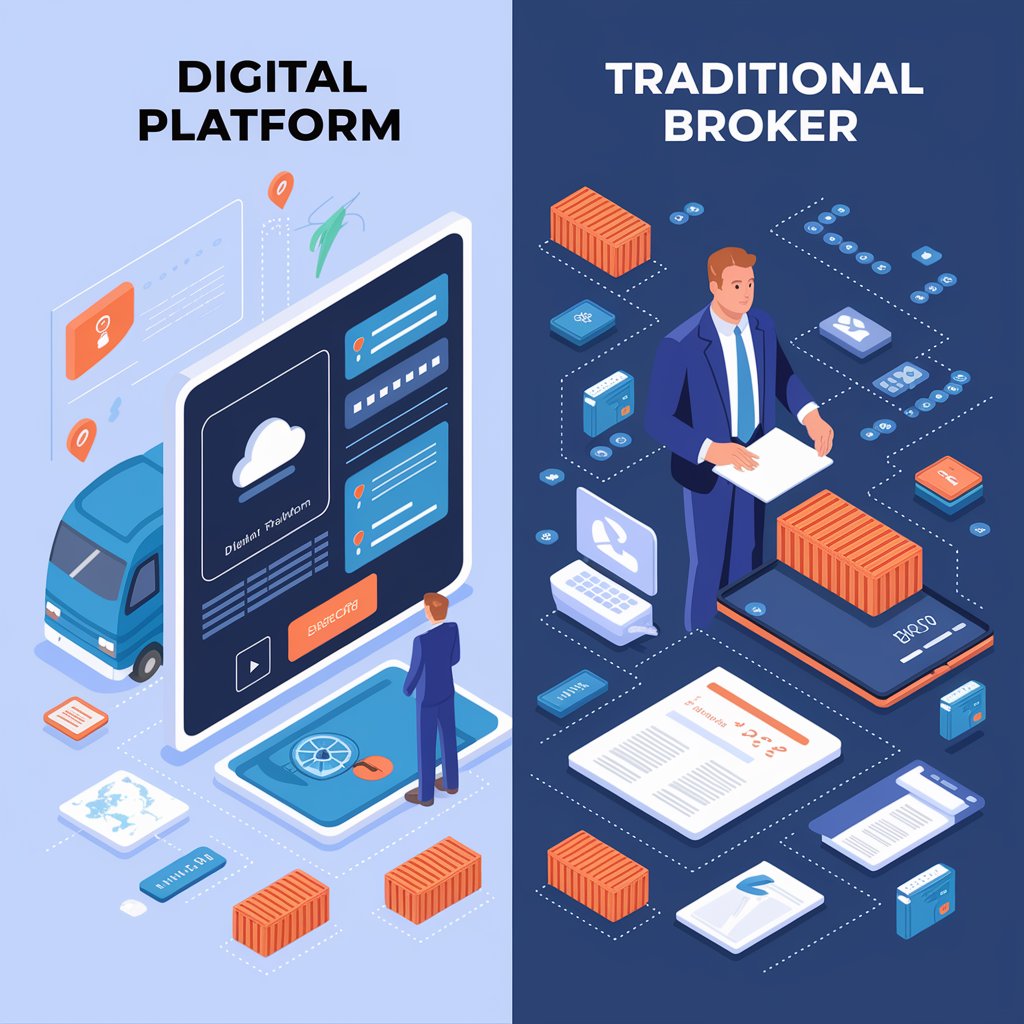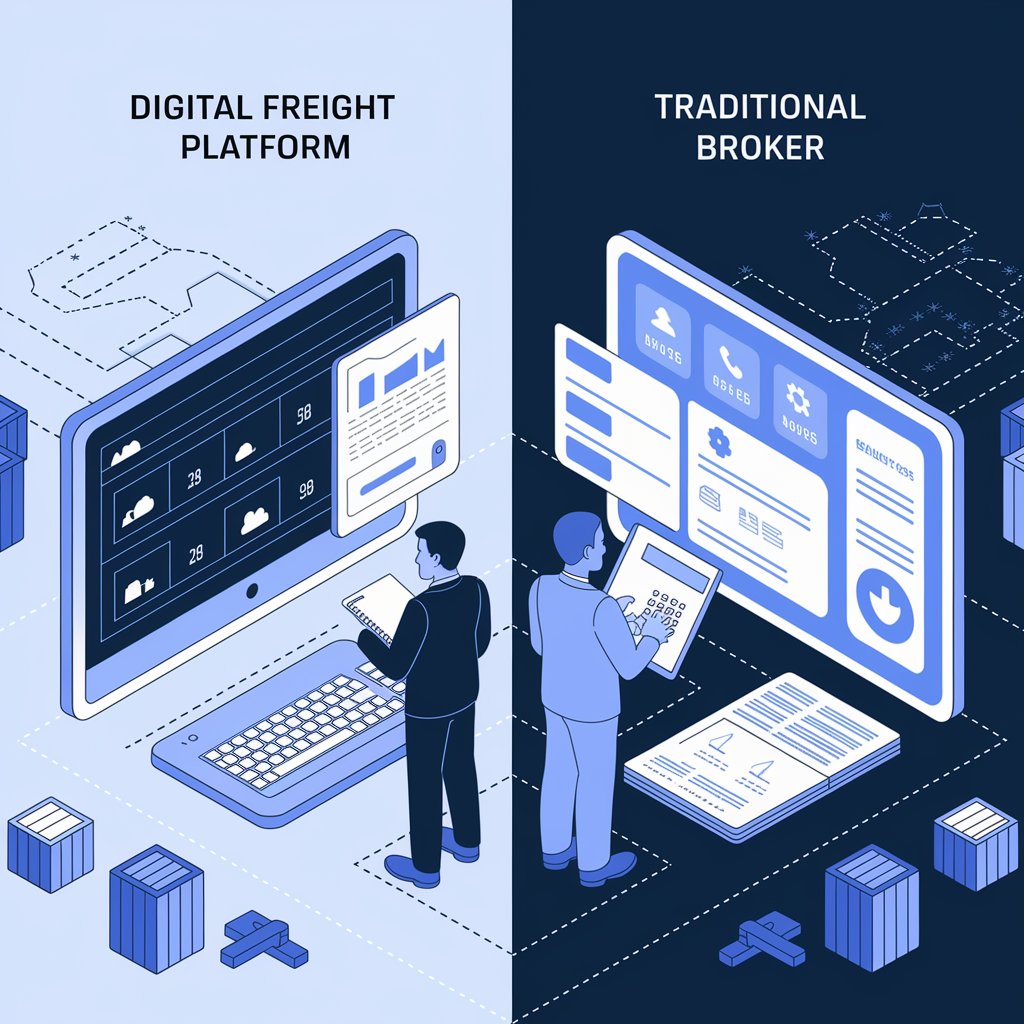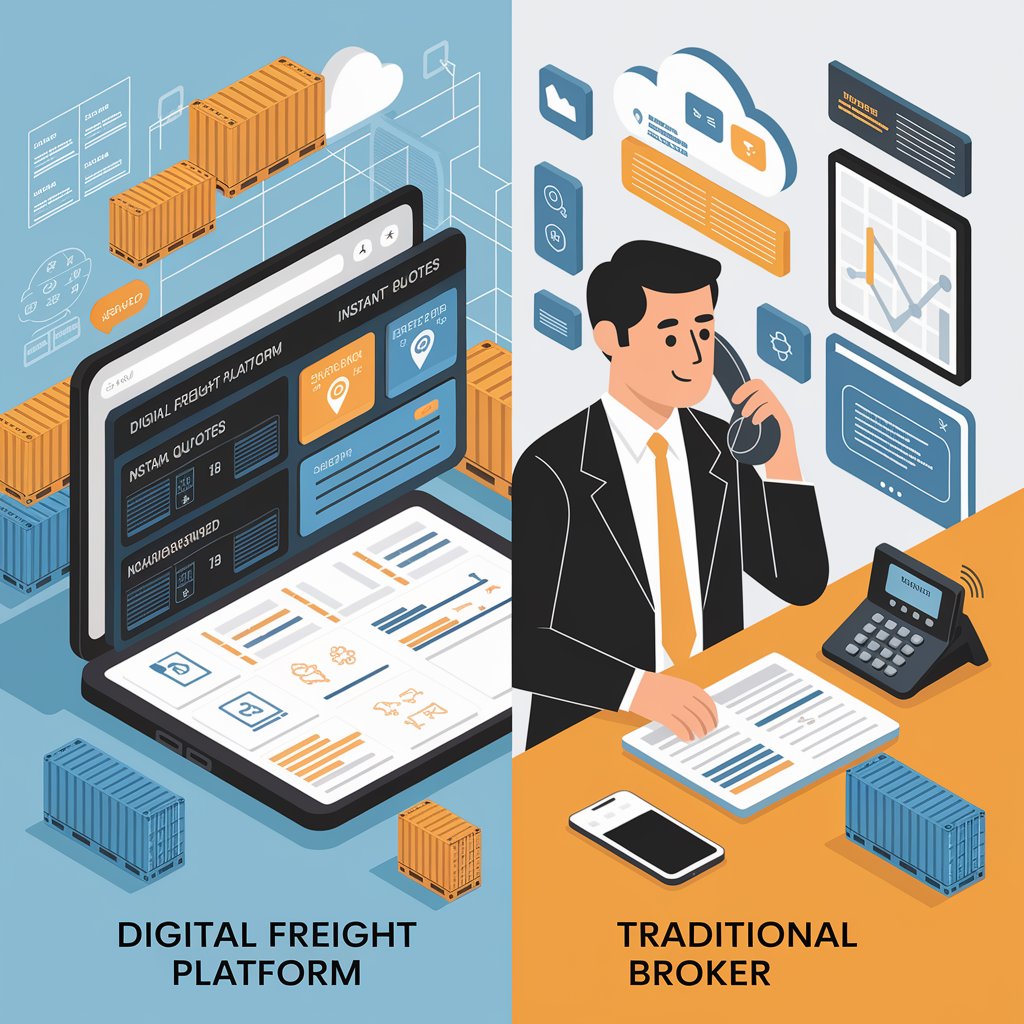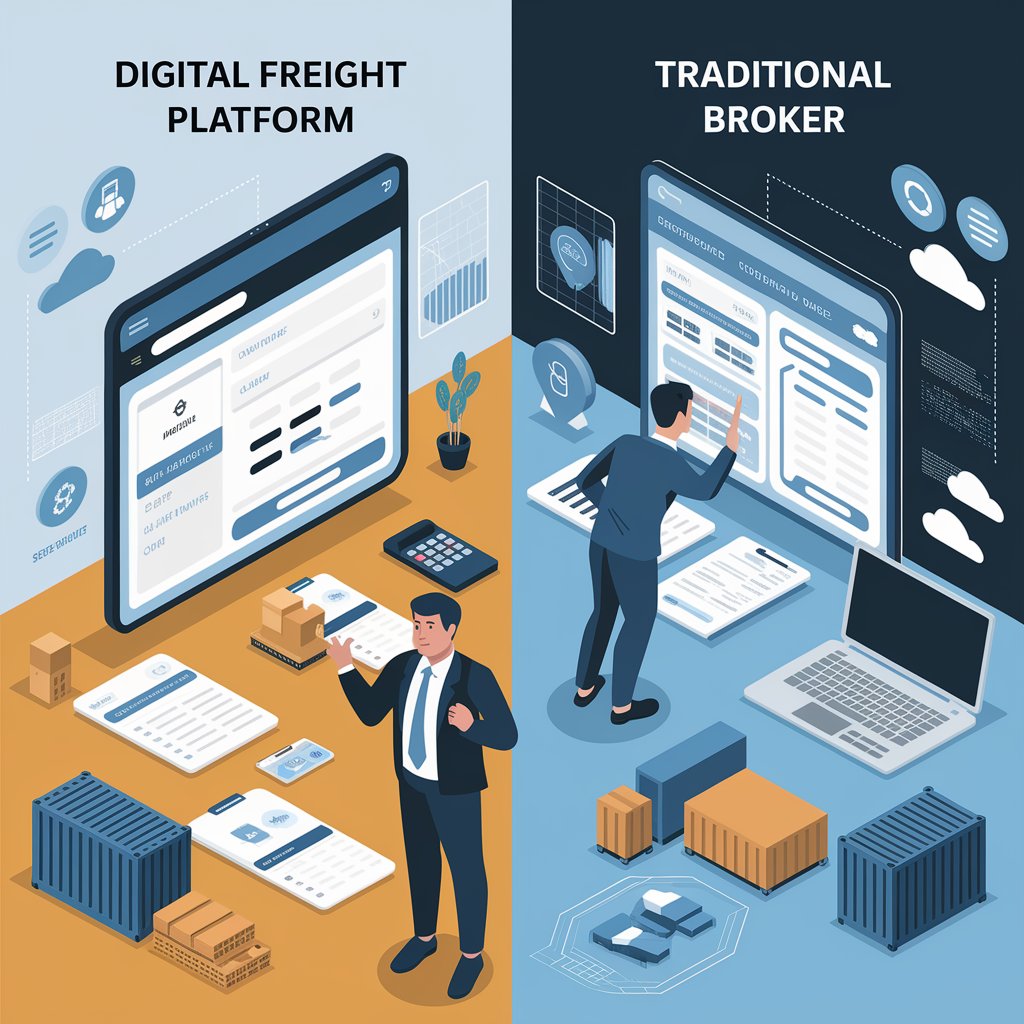Digital Freight Platforms vs. Traditional Brokers: Pros and Cons
Should you rely on a traditional freight broker or switch to a digital freight platform?

🔍 What Is a Digital Freight Platform?
A digital freight platform connects shippers and carriers via the cloud—offering real-time visibility, instant quotes, shipment tracking, and document automation. These platforms often leverage AI and APIs to eliminate manual processes and streamline communication.
Examples: Linbis, Flexport, Convoy, Freightos
🧳 What Is a Traditional Freight Broker?
A traditional broker acts as a middleman between shippers and carriers—negotiating rates, managing paperwork, and coordinating logistics, often via phone, email, or spreadsheets.
Examples: Small to mid-size 3PLs or independent freight agents.
🆚 Comparison Table
Feature/Factor | Digital Freight Platform | Traditional Broker |
|---|---|---|
Booking Speed | Instant or automated | Manual, slower |
Shipment Tracking | Real-time, cloud-based | Often manual or delayed |
Communication | In-app messaging, automated updates | Phone calls, emails |
Transparency | High (rates, carrier options, ETAs) | Varies depending on broker |
Human Relationship | Limited (less personal touch) | Strong, personalized service |
Cost Efficiency | Lower due to automation | May include markup or handling fees |
Scalability | Easy to scale with data integrations | Limited by human capacity |
Ideal For | SMBs, startups, digital-first ops | Complex shipments, relationship-driven |

✅ Pros of Digital Freight Platforms
- ⚡ Speed & automation: Instant quotes, auto-generated documents
- 📦 Real-time tracking: End-to-end shipment visibility
- 💰 Cost transparency: No hidden broker markups
- 🔗 Integration-ready: APIs and cloud-native workflows
- 🧠 Data-driven insights: Route optimization, performance metrics
⚠️ Cons of Digital Freight Platforms
- 🤝 Less personalized service
- 🚫 Not all carriers are onboarded (yet)
- 🧩 May not support highly specialized shipments without customization
✅ Pros of Traditional Brokers
- 👥 Human support and expert problem-solving
- 🧭 Better for non-standard shipments or niche routes
- 🧳 Strong carrier relationships and local know-how
⚠️ Cons of Traditional Brokers
- 🐢 Slower booking and communication
- 📄 Manual documentation increases error risk
- 💸 Higher cost due to middle-layer handling

🔄 Enter Linbis: A Platform That Combines the Best of Both
Linbis is a digital freight platform designed to empower freight forwarders, NVOCCs, and brokers by combining automation with human control.
Why Linbis Stands Out:
- ✅ Automate quoting, documentation, CRM, invoicing
- ✅ Collaborate with clients and vendors via portals
- ✅ Maintain control of your carrier relationships
- ✅ Built for forwarders—not just shippers
It’s not just a platform—it’s an all-in-one freight operations tool that helps you digitize without replacing your human expertise.

🎯 Final Thoughts: Which One Should You Choose?
Choose Digital Freight Platforms if… | Choose Traditional Brokers if… |
You prioritize speed, automation, and scalability | You handle highly specialized, sensitive shipments |
You need real-time data and instant quoting | You prefer direct, human-led logistics management |
You want to modernize operations and reduce errors | You value long-standing carrier relationships |
Want the best of both?
👉 Linbis lets you modernize like a platform, while staying in control like a broker.
